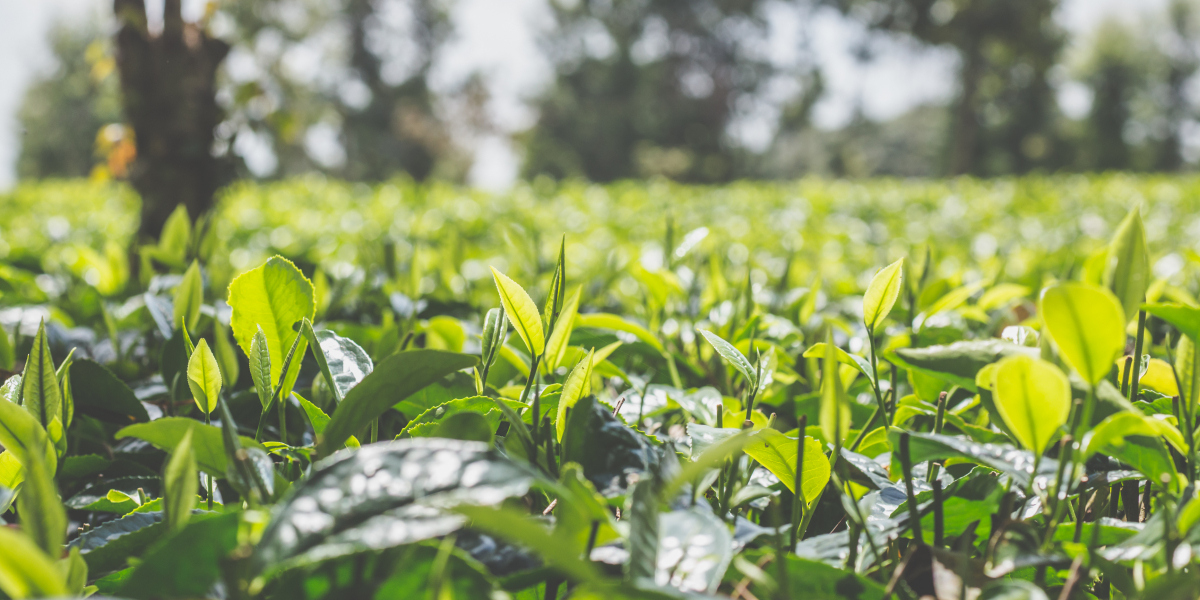28
Gender-based violence in Malawi
Posted in Malawi.

Today’s Sunday Times reports on some horrifying stories from women working on tea farms we buy from in Malawi. Human rights abuses have no place in our supply chain and we’re grateful to those who have had the courage to speak out.
Major action is now being taken by the two suppliers, Lujeri and Eastern Produce Malawi, including support, compensation and counselling for victims, disciplinary proceedings for those responsible and measures to safeguard whistleblowers. They have also committed to a raft of measures to strengthen their approach to safeguarding and protecting workers, including initiatives to ensure the safety of women and support empowerment and gender equality. There are more specific details further below.
First, we’d like to share some wider context about Malawi. It’s one of the world’s poorest countries, with 70% of the population living below the World Bank’s poverty line – and women there are especially vulnerable to exploitation and gender-based violence.
The Malawian tea industry is one of the country’s biggest employers, with more than 60,000 people’s livelihoods dependent on it. By buying from Malawi, we can use the influence we gain to help to change things for the better.
Since 2015, we’ve been involved in a project with fellow tea companies, NGOs and other organisations called Malawi 2020. The long-term aim is to make Malawi’s tea industry competitive and profitable, with workers earning a living wage and smallholders earning a living income. There’s a direct correlation between poverty and the vulnerability of women to exploitation and gender-based violence, and tackling the former helps to tackle the latter.
So far the project has helped the living wage gap in Malawi to close by 33%. You can read more about that here.
At Taylors, we’ve since committed to help close the living wage gap across the whole of our tea and coffee supply chains. You can read out more about that here.
Women in Malawi also face unequal access to education, economic opportunity and power. Though they make up about 30% of Malawi’s tea industry, there are few women in senior roles and there’s a lack of effective processes to protect women’s rights. Another goal of Malawi 2020 was to support female empowerment, to help bring down these barriers to progress. It has led to the first ever industry-wide Gender Equality, Sexual Harassment and Discrimination Policy, the setting up of Women’s Welfare and Gender Committees, and the hiring of a Gender Co-ordinator to advance gender awareness.
These are steps forward, but Malawi still faces huge challenges. Hearing the stories of the women working at Lujeri and Eastern Produce Malawi makes it painfully clear just how great a scale of change is needed. It will be the work of decades, not years. We can’t improve things unless we’re involved, and that’s why news of something going wrong in our supply chain doesn’t immediately result in us walking away from a producer, which can be harmful for the people reliant on our trade for their livelihoods.
A key foundation of sustainable trade is long term relationships – and our contracts guarantee that we’ll buy for several years in advance, at a level above the Fairtrade minimum price, plus an additional premium for quality. This gives a tea producer, and us, the confidence to invest in projects there (in 2020 we invested £1.4million in social and environmental projects to improve standards across our supply chain).
In situations like this, companies will often immediately stop trading with a supplier to try and limit reputational damage to their brands. We understand why but it’s hard to overstate the impact of suddenly cutting off some of the world’s poorest workers and smallholders from their source of income. So our first position is to work with a supplier, understand what’s gone wrong and support them to develop plans to put things right. If that’s not something they can do, we’d stop buying from them.
In Malawi, we’ve been in close contact with both the suppliers involved, and they’re engaging fully and openly with this process. Both have brought in external experts and agencies, like human rights consultants, to properly advise and oversee the work to come.
They’ve committed to establishing a wide range of projects including:
- sexual harassment and discrimination training programmes
- reviews of management systems and structures to minimise abuses of power
- women’s safeguarding supervisors on estates
- a specialist female leadership training programme to support the career progression of women into more senior positions
- gender equality scholarships
- A grievance helpline for workers to raise issues safely in the knowledge that they’ll be properly addressed
As these are put into place, we’re also working with our partners in the tea industry on a bigger programme to help tackle more issues across estates and communities in Malawi, building on the work already done in Malawi 2020. It’s focusing on leadership training for women, female financial empowerment through village savings and loans schemes, better worker representation in the industry and community awareness of gender issues and equality.
To keep updated on next steps or to find out more about how we source our tea, please head here.
---
UPDATE
April 2, 2020
We've recently been made aware that Lujeri has lost its Rainforest Alliance certification.
This doesn't immediately mean the end of a trading relationship. As mentioned above, it’s hard to overstate the impact of suddenly cutting off some of the world’s poorest workers and smallholders from their source of income.
Instead, it's important to take some time to work with everyone involved, including the Rainforest Alliance, to understand the wider implications before deciding what to do next.




